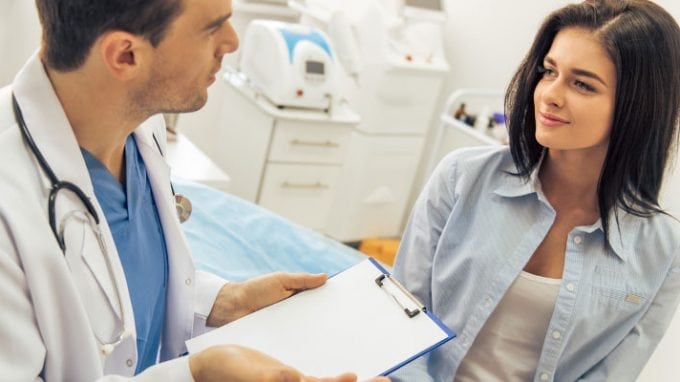The exact type of a reproductive system ailment known as polycystic ovarian syndrome (PCOS) a woman has could determine the symptoms she’ll experience and the treatment options she can explore.
Believe it or not, the medical condition, while generalized as PCOS, has several different types each composing of different symptoms, and like the differences in symptoms, there are potential therapeutic protocols for each specific type.
What Is PCOS?
Defined in its simplest term, polycystic ovarian syndrome is a potential health and fertility-threatening disease affecting a woman’s ovaries and possibly other areas of her reproductive tract. Scientists believe significant hormonal imbalances or environmental factors precipitate the disease. Typically, this illness affects women of child-bearing age and strikes anywhere from five to 10 percent of females fitting this category.
The Major Disease Categories
Polycystic ovarian syndrome breaks down into several different categories, which are medically referred to as phenotypes. Specific phenotypes include:
Classical Polycystic Ovarian Syndrome
This form of the disease, sometimes scientifically classified as the insulin-resistant phenotype usually starts with a hormonal imbalance of insulin and testosterone. Women with this strain of the affliction show significant resistance to the vital metabolic hormone insulin. In addition, an increased bodily concentration of testosterone, the primary male hormone, influences these individuals.
These chemical irregularities often manifest in physical symptoms such as excessive hair growth, balding, skin problems like acne, wild blood sugar fluctuations, menstrual cycle disruptions, conception problems, challenging pregnancies, and the risk of developing diabetes while pregnant or later in life.
Non-Insulin Resistant Polycystic Ovarian Syndrome

In addition to the two main types, there are three other sub-categories of polycystic ovarian syndrome including:
The Non-Traditional Type I
Women influenced by this variation would likely present with some of the classic symptoms like ovulation problems, severe systemic inflammation, and insulin resistance but would not experience elevated systemic concentrations of testosterone.
Non-Traditional Type II
Those afflicted with this derivative of the illness will have normal menstrual cycles, only mild insulin resistance, and high testosterone concentrations.
Idiopathic Hirsutism (Excessive Hair)
The clinical manifestations of this variation include regular ovulation periods, no insulin resistance, and elevated testosterone levels.
How Is the Illness Diagnosed?
Diagnosing the specific variation could present a challenge. Physicians typically draw an exact conclusion after performing a thorough physical examination and taking numerous blood tests.
Treatment Options
Doctors gear therapeutic protocols toward remediating the underlying factors of whatever variation of the illness the patient has. However, there are several general treatment options that might offer relief, such as:
Correcting Insulin Sensitivity
When mild occurrences of sensitivity are present, keeping blood sugar levels from elevating might accomplish the task. In some instances, certain medical professionals suggest augmenting diet with natural blood sugar-lowering products. In severe manifestations, the use of prescription medications might be necessary.
Avoiding the Ingestion of Toxins
Bad habits such as smoking, drinking alcohol excessively, and the exposure to a host of environmental toxins could precipitate the hormonal imbalances that might lead to polycystic ovarian syndrome.
Reducing Stress
Heightened levels of tension could precipitate hormonal imbalances.
Consuming a Balanced Diet
Eating healthy foods like fruits, vegetables, and products full of with vitamins and nutrients can help promote both balanced blood sugar levels and hormonal concentrations.
Using Natural Hormone-Balancing Products
Many natural products have natural hormone-balancing properties and are in a number of common nutritional supplements.


